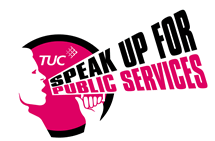The recession has placed unprecedented strain on local public services and economies. Public services are facing increasing demand, yet are under mounting pressure to make savings and become more efficient. One suggestion often put forward to tackle the country’s growing debt problem is to outsource or privatise our public services. This pamphlet examines this proposition and attempts to explode some of the myths and misconceptions about privatisation to show that it would cause more problems than solutions.
There is a strong economic and social case for public services, both in a recession and during recovery, in maintaining and creating employment, boosting skills and promoting health and well-being. Public services help promote economic competitiveness as well as social inclusion, yet these arguments are being lost in the race to find ways to cut spending and services.
The Push to Privatisation
‘Gordon Brown has announced a £16bn sale of government assets in an effort to reduce the growing budget deficit. The Dartford crossing, the cross-Channel rail link and the nationalised bookmaker the Tote will be among items going on sale over the next two years.’ BBC News 12 October 2009
Public sector organisations with more than 1,000 employees ’should conduct a systematic review of their functions, systems and processes to drive simplifications and standardisation. They should lead to significantly greater sharing of services and potentially increased outsourcing.’ Treasury Operational Efficiency Programme 2009
“The power of competition and the opening up of the NHS to new providers will bring innovation and investment. And the power of choice will lead to better quality care.” David Cameron, 20 April 2009
“Charities, private companies and parents’ groups will also be allowed to set up schools – competing with existing primaries and secondaries for local children – and in time, though this is not yet Tory policy, to do so for a profit. ” David Cameron, 6 February 2009
‘Non-core activities are best provided by the private and third sectors unless it is essential for them to be provided in-house.’ CBI, Doing more with Less
What do we mean by privatisation?
Privatisation is a broad term that covers several concepts
- Full privatisation. The handing of control and/or ownership of public services to the private sector.
- Public-private partnerships (PPPs) refer to collaborative relationships between public bodies and private companies, including PFI.
- Private Finance Initiative (PFI) partnerships. Method of providing new public buildings and projects such as schools, hospitals, roads and homes by using private sector money up front that is later repaid with interest by the state. A private sector consortium designs, builds, finances the project – and then operates it for a period of at least 25 years. The consortium’s fees are paid from public money, with an element of that fee dependent on it meeting performance standards throughout that period.
- Outsourcing to private and not for profit organisations. Awarding a contract to a private, voluntary sector organisation to supply a service previously run by a public sector body such as a council or hospital.









Our city council privatised rubbish removal services, and it caused nothing but trouble. I don’t have a problem if manufacturing is privatised, but privatising services is a much more difficult matter.
I agree with you, I don’t have a problem with private enterprises, but I do think that services that are for the public should remain in the public sector.
Well put Cherie. Provatisation has often been pretty disastrius
It is a TUC document which I am running as a series. I think it is important right now for people to see this information.
Cherie,
You are right to raise concerns about the long term cost of major public capital projects procured through PFI and public/private partnerships. A figure of £65billion has been put on the current PFI debt and this is likely to rise as the next and successive governments seek to juggle their commitments and defer exchequer spending. I have to declare an interest in that I advise the NHS and other public authorities on how to better manage their operational PFI projects, claw back overpayments and find savings. By comparison with the total debt, the savings we can find are a relative drop in the barrel but based on the experience of the past 24 months, UK plc cannot afford to overlook any opportunity for saving public expenditure.
Thanks for you insight into this issue. I think quite a few of the PFI projects could do with being managed better than they are currently. The ones that I have come across always seem to have gone over budget and been delayed.
I agree that government should be making savings in public expenditure, there are other areas where savings can be made which seem to have been overlooked by them.